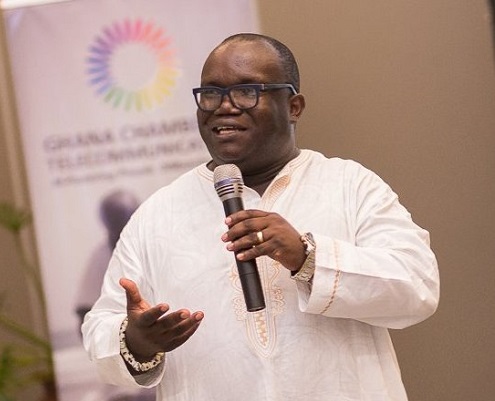
The Chief Executive Officer of the Ghana Telecommunications Chamber has called for the reduction of the electronic transactions levy (E-levy) from 1.5 per cent to 0.1 per cent.
According to Dr Ken Ashigbey, the introduction of the e-levy at 1.5 per cent had proven counter productive to both the government and the development of Ghana’s digital economy.
He explained that while calling for a total scrap of the tax measure would be insensitive considering the government’s dire need for money amidst economic turmoil, reducing it to 0.1 per cent would revamp the digital economy thus generating more revenue for government.
Speaking on JoyNews’ PM Express Business Edition on Thursday, he said, “Our proposition is the fact that, you know, they should scrap it. But we need to be real, the government needs money at this particular stage. The deficit position is not good for the industry, it affects the industry, and it’s one of the things that would account for the depreciation of the cedi. The macros would be destabilised.
He said “the best thing to do is to reduce the level. Some in the industry have talked about 0.5, but I have said that the best thing to do is to do 0.1 per cent.”
He added that while the government reduced the rate, it should also place a cap on it.
Dr Ken Ashigbey suggested that transactions that were 5,000 cedis and above should only attract a fixed e-levy rate to attract more large transactions on mobile money platforms.
According to him, the current cap-less system made it most undesirable to transact business with large sums of money via digital platforms.
“Push the level down to 0.1 and then put a cap on it. Say GH¢5,000. At GH¢5,000 the levy is fixed so that if anybody wants to send GH¢10,000, you know, that will happen,” he said.
“Take out the discrimination between the GH¢20,000 that you give to the banks and then you give to mobile money so that the discrimination is not based on that,” he added.
According to him, when physical transactions were capped at GH¢2,000, for instance, people would be forced to transact business via mobile money platforms for large transactions.
“Another innovative thing that we would say is that put a cap on any transaction that can be done by cash, so let’s say GH¢2,000. If you want to do any transaction above GH¢2,000 use a digital means for mobile money, for the banks and all of that. What will happen is that a lot of the things that happen underground… a lot of that you’ll be able to take them off and then you’ll be able to see a lot of movement in terms of cash and that also will help,” he said.
“And then in terms of government payments, make sure that all government payments mandatorily are made simple and let people be able to pay so that tolls that people pay in the market and all that will use these digital means. And if you’re going to do that make sure that it is seamless, it’s not difficult to do,” he added.







